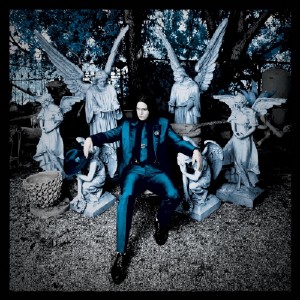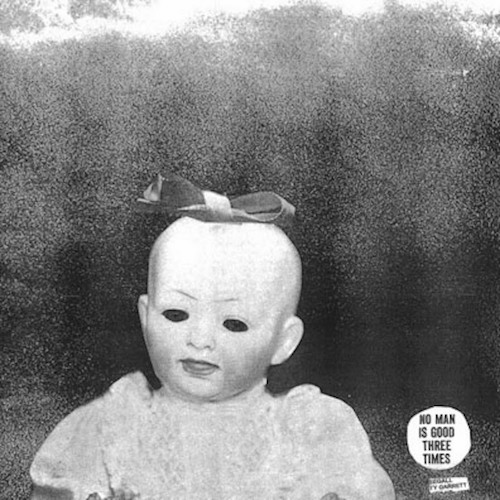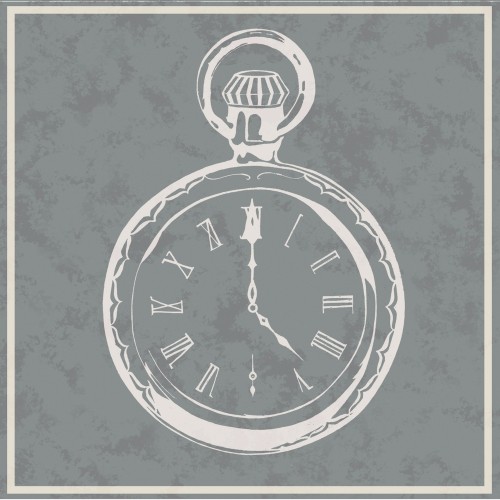 Release Date: June 10, 2014
Release Date: June 10, 2014





“I wanna cut out my tongue and let you hold onto it for me/’cause without my skill to amplify my sounds, it might get boring,” Jack White flatly warns on the thrillingly dark “That Black Bat Licorice.” Luckily, not a moment of his sophomore solo LP Lazaretto gets boring.
When White toured his 2012 solo debut Blunderbuss, he played career-covering sets including songs by the White Stripes, the Dead Weather, and the Raconteurs, making it unclear whether his solo career would even continue. Lazaretto destroys those doubts; it confirms White’s satisfaction with the sound of Blunderbuss, but insists on expanding it. With Lazaretto, White cements his solo career by bringing back Blunderbuss’ successful songwriting, but this time with confidently varied instrumentation and his darkest lyrics to date.
White’s musical feast highlights his talents as a narrator, balladeer, and, as Rolling Stone put it, “a rock ‘n’ roll Willy Wonka” by meticulously placing each skill in its rightful setting. The organ-led opener “Three Women” presents compelling storytelling, affirming each line of the tale (originally penned in 1928 by Georgia bluesman Blind Willie McTell) with a proud piano figure. Elsewhere, White signals the continuation of his signature straightforward, rowdy rockers with “High Ball Stepper,” a noisy, jarring instrumental.
Lazaretto’s title track spices up White’s familiar, ear-crunching garage rock with Spanish lyrics and lightning-fast wordplay. Its eruptive, manic guitar solo sputters in a way that’s inescapably similar to Blunderbuss opener “Missing Pieces,” but doesn’t leave it at that; a hard-hitting violin solo brings the track to an ominous close.
The strong stance taken by Lazaretto’s violins exemplifies White’s aim: to restate, confirm, and magnify the sonic ideas of Blunderbuss.
While they contributed only texture to White’s first solo LP, violins quickly become a staple on his second. They dominate much of Lazaretto, making powerful musical statements in White’s hard-rock breakdowns (“Lazaretto”), gentle intros (“Temporary Ground”), and country-tinged, harmonized fiddle flare-ups (“Just One Drink”).
Despite the aforementioned fiddle line, “Just One Drink” isn’t a country-inspired number. In fact, its driving riffs and sincerely sung lyrics return White to his true passion: modernizing American blues. His update features a pounding piano, deliberately-strummed acoustic guitars, and stunning audio clarity, proving that White is truly committed to keeping the blues alive in the 21st century.
While the laughter heard at the end of “Just One Drink” and overall zest displayed throughout Lazaretto show him enjoying what he does best, the pessimistic lyrics throughout the album reveal the cynicism of an aging Jack White.
“Alone In My Home” ironically sounds like a walk in the park with its deliberately cheery, upbeat piano figure, but the disconcerting lyrics find White hurt by those he trusted. Instead of confronting the “lost feelings of love that hover above [him],” he chooses to simply stay indoors, avoiding people altogether.
“Entitlement” is Lazaretto‘s crankiest track, portraying White as an old man bitterly lamenting the selfish, impatient attitudes of the iPod generation.
Oddly enough, he actually envies the brats he scolds. Regretting his own good conscience, White admits, “I can’t bring myself to take without penance, atonement, or sweat from my brow/…/I feel like I’ve been cheated somehow.” White closes his acoustic bitch-out session of Generation Y with the realization that no one, of any generation, deserves to feel entitled, concluding that “not one single person on God’s golden shore is entitled to one single thing/We don’t deserve a single damn thing.”
Biting pessimism may run rampant on Lazaretto, but superior songwriting runs right alongside it. Album closer “Want and Able” is a brilliantly confusing take on the universal “ends vs. means” conflict. The folky tune personifies desire (Want) and the means to obtain it (Able). “Want and Able” forces listeners to determine which “character” governs their actions, asking in each chorus, “Who is the who telling who what to do?/Tell me who, tell me who, tell me who.” By the end of the song, listeners can no longer distinguish between the two.
White’s songwriting raises the status quo on every record he touches, and Lazaretto is no exception. With masterful songwriting, clearly defined instrumentation, and indelibly negative lyrics, Lazaretto solidifies Jack White’s solo career as an unstoppable force.
Jack White – Lazaretto tracklist:
- “Three Women”
- “Lazaretto”
- “Temporary Ground”
- “Would You Fight For My Love”
- “High Ball Stepper”
- “Just One Drink”
- “Alone In My Home”
- “Entitlement”
- “That Black Bat Licorice”
- “I Think I Found The Culprit”
- “Want and Able”


